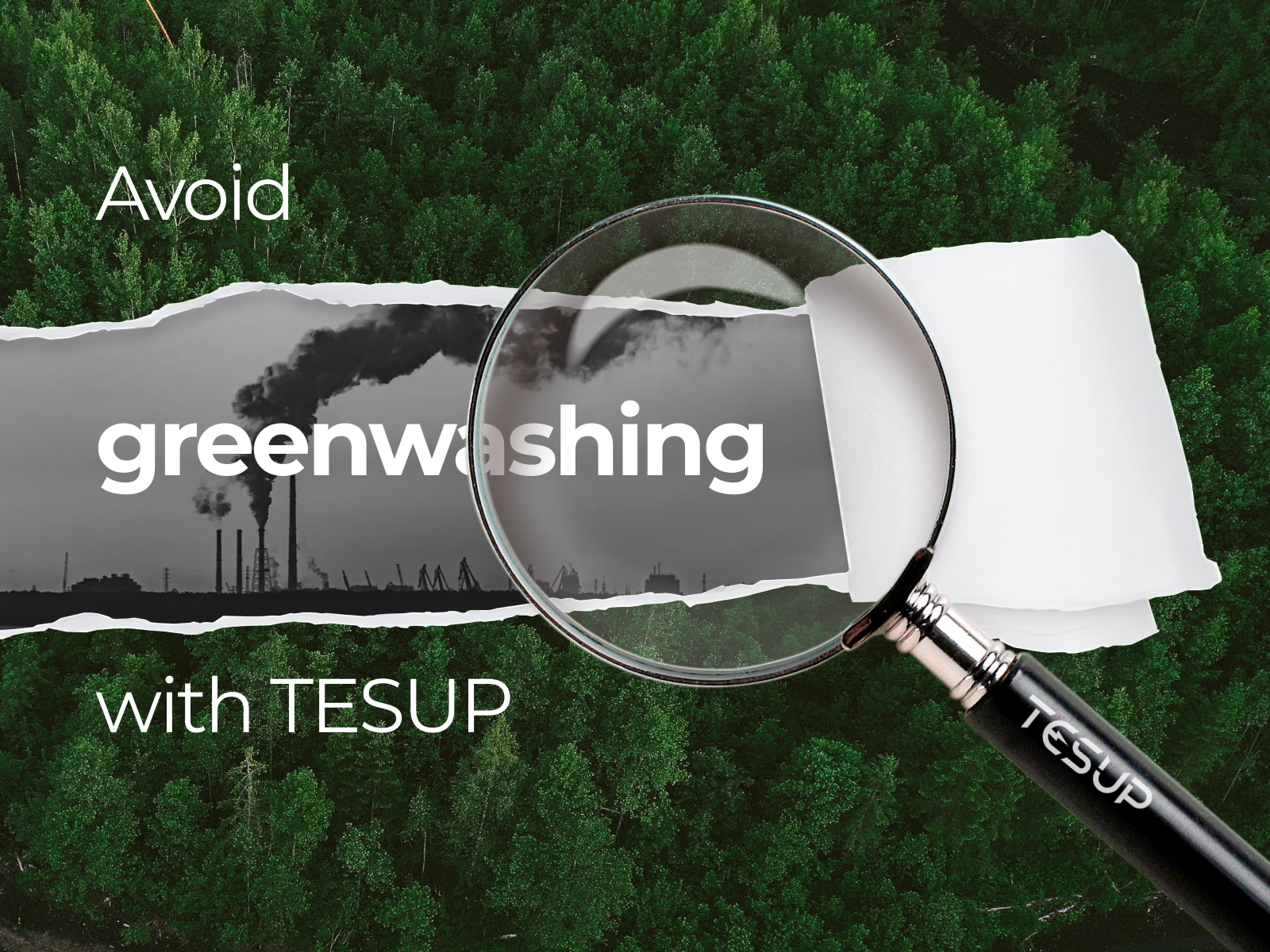
At TESUP, we're not just another faceless renewable energy company. We're not here just to make a profit; we're here because we genuinely care about the environment and are passionate about making a real difference. We understand the profound importance of making eco-friendly choices in a world that's becoming increasingly conscious of its environmental impact.
We're not just about selling products; we're about guiding you on your journey to a more sustainable future. In this blog post, we will discuss the 'greenwashing' trap to make sure you don't fall into it because we believe in genuine, impactful change. Let's embark on this journey together.
Understanding Greenwashing
Greenwashing is an unfortunate reality in today's market, where some companies make misleading claims about their environmental practices or the eco-friendliness of their products. It’s a practice that can make it challenging for consumers to differentiate between genuine sustainability and empty marketing promises. Let's dive deeper into this issue:
Common Greenwashing Tactics
- Hidden Trade-offs: Some companies claim their products are "green" or "sustainable" in one aspect while conveniently ignoring or downplaying other, less eco-friendly aspects. For example, a car manufacturer might emphasize a car's fuel efficiency while conveniently overlooking its high emissions.
- Vague Terminology: Using words like "natural," "green," or "eco-friendly" without providing concrete evidence can be misleading. Genuine eco-friendly products will typically offer specific details about their environmental benefits.
- Irrelevant Claims: Sometimes, companies will make claims that have no real impact on the product's environmental footprint. For example, advertising a product as "CFC-free" may not be significant if CFCs were never used in its production.
- False Certifications: Some products display fake or irrelevant certifications to give the illusion of environmental approval. It's always essential to verify the authenticity of certifications by researching the certifying body.
- The Green Label Fallacy: Just because a product is packaged in green or earthy colors or features images of leaves and trees doesn't necessarily mean it's eco-friendly. Visual cues alone do not determine a product's environmental impact.
How to Avoid Greenwashing with TESUP
When considering TESUP's renewable energy solutions, you can be confident that you're making an authentic and sustainable choice. Here are some ways to ensure you're not falling victim to greenwashing:
- Do Your Homework: Research the company and product thoroughly. Look for information about their sustainability practices, certifications, and transparency regarding their environmental impact. The more information they provide, the more likely they are genuinely committed to sustainability.
At TESUP, we are committed to sustainability, transparency, and the promotion of eco-friendly energy solutions. Our dedication is demonstrated through the quality and adaptability of our products.
- Look for Specifics: Authentic eco-friendly products will provide precise details about their green features, such as reduced energy consumption, recycled materials, or carbon emissions reductions. If a product's claims are vague, be skeptical.
The V7 Vertical Wind Turbine's adjustable design, various blade sets, the efficiency of the H7 Horizontal Wind Turbine, and the versatility of the Flex Solar Panel offer specific, tangible benefits that are genuinely eco-friendly and proven to be effective.
- Check for Third-Party Certifications: Trustworthy eco-labels, such as ENERGY STAR, Fair Trade, or USDA Organic, are given out by independent organizations with established criteria. Verify the legitimacy of certifications to ensure they are not misleading.
TESUP's products meet and exceed industry standards. We take pride in providing reliable, high-performance renewable energy solutions that are backed by genuine certifications and endorsements.
- Investigate the Supply Chain and Look for Transparent Reporting:
Learn about the entire lifecycle of the product, from sourcing raw materials to manufacturing, distribution, and disposal. Companies that are genuinely eco-conscious will have sustainable practices throughout their supply chain. Companies that are genuinely committed to sustainability often publish annual sustainability reports that detail their environmental efforts and goals. Reading these reports can provide valuable insights. Consult eco-conscious organizations, review sites, and experts in the field for unbiased assessments of products and companies. These sources can help you separate fact from fiction.
TESUP believes in transparency. We are committed to providing our customers with accurate information and are continuously working on improving our sustainable practices.
-
Trust Your Instincts:
If something sounds too good to be true, it probably is. If a product's green claims seem exaggerated or implausible, proceed with caution.
TESUP's products are designed to provide authentic sustainability without the need for exaggerated marketing claims. Trust your instincts when evaluating the credibility of our renewable energy solutions.
As your trusted renewable energy partner, we are committed to providing you with authentic, eco-friendly solutions in the form of household wind turbines and solar panels. We encourage you to be vigilant when choosing eco-friendly products and to avoid greenwashing by following the steps outlined in this guide. Together, we can make informed choices that genuinely support the environment, and we are here to support you on your journey toward a more sustainable and eco-conscious lifestyle.
At TESUP, we're not just here to sell you products. We're here to be your genuine partners in creating a more sustainable and eco-conscious world. Thank you for considering us for your renewable energy needs.
